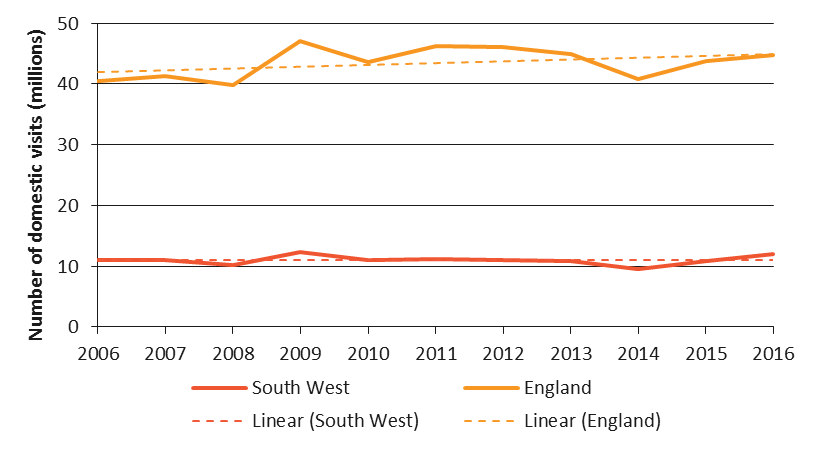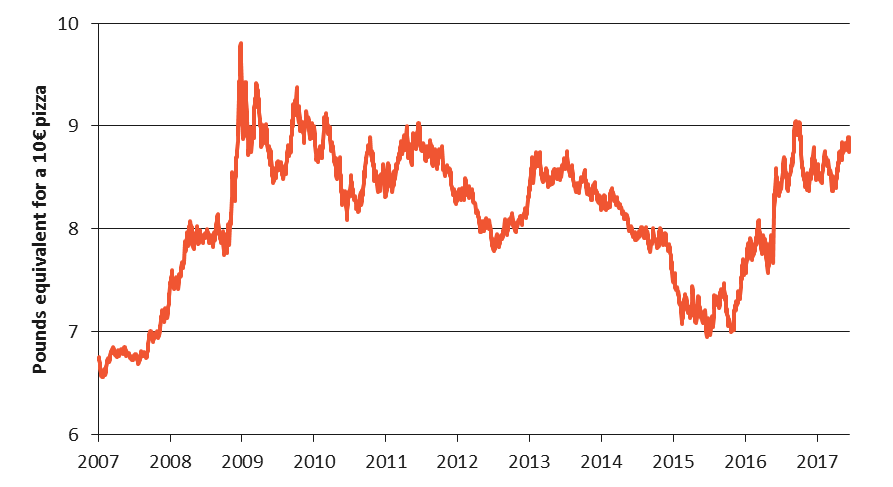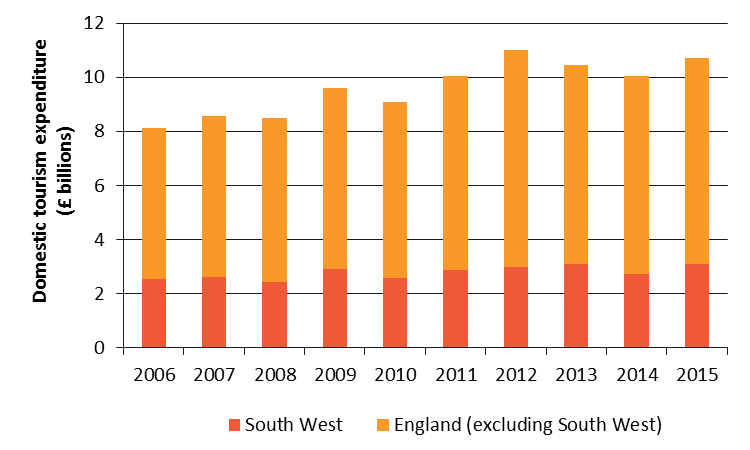I am looking forward to attending the Rural Entrepreneur Live event at Birmingham’s NEC next Wednesday (8 November 2017). In readiness I have dusted off a recent blog I prepared on the importance of the ‘Staycation’ to the South West economy, which was first published for Insider back in July.
Travelling with a young child is not easy. Not only is there the challenge of packing everything you need into too few suitcases but you need to keep the toddler entertained during travel and be on full alert in the hottest of climes. And that is if things go well. Last summer my three year old daughter caught chicken pox on holiday in Italy. Had we been on holiday in the UK we would have simply driven home to our creature comforts.
Our experience was simply bad luck. But, I have to say that those events made us think, should we stay in the UK this year? We are not alone. Holidaying in the UK is a popular choice that many of us are increasingly making. According to VisitBritain 44.7m holiday trips were taken in England in 2016, 2 per cent higher than in 2015 and 12 per cent higher than in 2008. Whilst the total number of holidays each year has fluctuated the ten year trend for England shows growth.
Figure 1: number of domestic trips in England and the South East

Source: GB Tourism Survey
The 2008 global financial crisis and the 2009 UK recession corresponded to a significant boost in the growth of domestic holiday trips in England, perhaps the two doing more to promote the Great British holiday than anything for some time. The change in exchange rates between the Pound and other currencies have helped. The ‘weak’ pound makes the traditional Mediterranean holiday not as value for money as it once did – paying in Pounds for a 10€ pizza is 16 per cent more expensive in July 2017 than it was on the 23 June 2016 and nearly 30 per cent more expensive than two summers ago.This is not yet as staggering a change as in 2008, but significant nonetheless for British holidaymakers in Europe.
Figure 2: cost of a 10€ pizza in Pounds since July 2007

Source: Bank of England
We are also taking more holidays: the ONS reports that 2016 saw a record number of visits to the UK by overseas residents and visits abroad by UK residents. We are finding excuses to take more short breaks by celebrating greater numbers of life events and with an appetite for gaining new experiences on holiday, the so called ‘staycation’ or holidaying in the UK is growing and it is boosting the UK’s economy.
Around £85bn was spent on tourism in England in 2015 and when direct and indirect benefits are taken into account tourism in England contributes £106bn to the British economy while supporting 2.6m jobs (Visit Britain 2016).
Tourist spending in local economies is for the taking and regions should be vying to increase their share. Between 2006 and 2015 , the South West experienced a 21 per cent growth in tourism spending. However, whilst this is strong performance, the region has seen its share of tourism national spend decrease (from 31 per cent to 29 per cent) despite tourism spending in England rising by 32 per cent over the same period. Whilst this is good news for the English tourism sector, it’s a lost opportunity for the South West.
Figure 3: Domestic holiday expenditure in England and the South West

Source: GB Tourism Survey
Without a doubt there are opportunities within the South West to reverse this trend. Indeed, the quality and beauty of the beaches and coastline go far beyond those I have visited in any Mediterranean country. It will be those local authorities that welcome and actively encourage tourism development that will gain the greatest economic benefits to boost their local economies.
Local planning policies have often been restrictive and focused upon the control and limitations of development, such as holiday parks. But investment by operators is vital. The most proactive are focused on ensuring that their facilities and accommodation can attract repeat and new visitors year after year.
We are seeing some local planning authorities in the South West responding positively to the challenge. Cornwall Council and Weymouth and Portland Borough Council are two examples where they recognise the need to support the tourist market through constructive policies and a culture of seeking opportunities. In my view this must continue to ensure the South West does not lose out to other regions who are also looking how to strengthen their share of that increased expenditure.
As a country we are good at showcasing our tourism offer and while we continue to find excuses to spend a weekend or week away in the UK, the South West must take advantage of its strong position and ensure that we maintain and grow our regional tourism offer in the future. The ‘staycation’ seems to be here to, well, stay.
In May, Lichfields published the Rural estates: economic benefits of rural tourism insight
. This examined rural areas and the potential for country estates to diversify their existing operations, to include provision of tourist accommodation.






